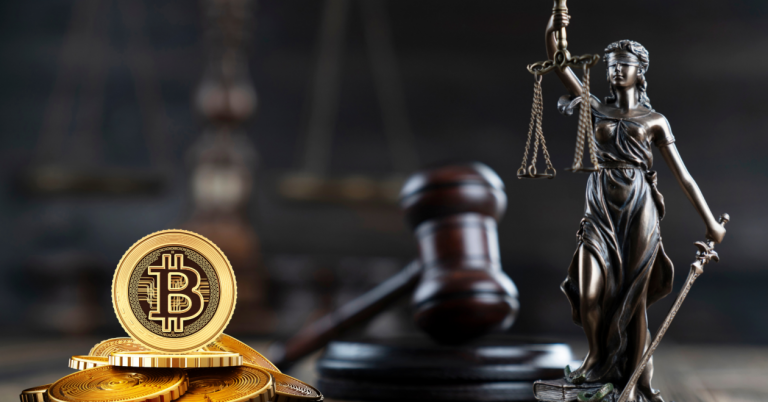
Comparing Brazil and U.S. cryptocurrency laws reveals stark differences in approach, clarity, and implementation. Brazil has taken a more progressive and unified stance, while the U.S. relies on a fragmented, enforcement-driven framework. Law No. 14,478/2022 enacted in December 2022 and effective since June 2023, this law formally recognizes “virtual assets” (e.g., Bitcoin) as digital representations of value that can be used for payments or investments. It doesn’t classify crypto as legal tender but legitimizes its use in commerce and finance.
These applies to individuals and companies, enabling firms like Me?liuz to hold Bitcoin as a treasury asset without specific prohibitions. The law is broad, leaving room for interpretation and future regulation by the Central Bank of Brazil (BCB). In the U.S. no single federal law defines cryptocurrencies. Instead, classification depends on the regulator.
US views most tokens as securities under the Howey Test if they involve businesses and must navigate overlapping agency jurisdictions, often facing retroactive enforcement rather than proactive guidance. Brazil offers a clear legal foundation for crypto as an asset class, while the U.S. relies on a patchwork of agency interpretations, complicating compliance.
Register for Tekedia Mini-MBA edition 19 (Feb 9 – May 2, 2026).
Register for Tekedia AI in Business Masterclass.
Join Tekedia Capital Syndicate and co-invest in great global startups.
Register for Tekedia AI Lab.
Central Bank of Brazil (BCB): Designated as the primary regulator under Law 14,478, overseeing crypto service providers (e.g., exchanges). The BCB focuses on financial stability and consumer protection but has yet to issue comprehensive rules as of March 2025. CVM (Securities Commission) regulates crypto only if it qualifies as a security (e.g., tokenized stocks). Offers a regulatory sandbox for experimentation, showing openness to innovation. Centralized and permissive, with a focus on enabling adoption while addressing risks like fraud.
Aggressively US regulates crypto as securities, targeting unregistered offerings (e.g., Ripple lawsuit, 2020). Tokenizing COIN would require SEC registration or exemptions. CFTC oversees crypto derivatives and commodity markets, less relevant to Coinbase’s stock tokenization but key for Bitcoin trading. The FinCEN enforces AML/KYC rules for crypto transactions under the Bank Secrecy Act. Regulation varies widely across States in the US (e.g., New York’s BitLicense), adding complexity.
Decentralized and enforcement-heavy, with agencies often competing for jurisdiction. A new SEC crypto task force (circa 2025) signals potential reform, but details remain unclear. The Brazil’s centralized BCB oversight contrasts with the U.S.’s multi-agency tangle, making Brazil’s system more predictable for companies like Me?liuz, while Coinbase faces a regulatory maze.
In Brazil Taxation under the Federal Revenue Service (RFB): Crypto is treated as movable property. Gains from sales are subject to capital gains tax (15%-22.5%, progressive based on profit size). Monthly reporting is required for transactions over BRL 30,000 (~$5,400 USD). Me?liuz must report Bitcoin gains/losses in its financials, a standard process for public companies, with no unique crypto-specific barriers. While in the US Crypto is property, with every sale or trade triggering a taxable event (capital gains tax: 0%-37% depending on income and holding period).
No specific threshold triggers reporting, but Form 1099s are required from exchanges. Users face complex tax tracking, especially for tokenized assets, where fractional sales could multiply taxable events. Both countries tax crypto gains similarly, but Brazil’s higher reporting threshold simplifies compliance for smaller transactions. The U.S.’s broader tax net creates more administrative burden, particularly for innovative projects.
In Brazil Crypto exchanges and financial institutions must comply with AML/KYC under general financial laws (e.g., Law 9,613/1998). Law 14,478 mandates these rules for crypto service providers, enforced by the BCB. Me?liuz, as a fintech, likely already meets these standards, easing its Bitcoin reserve adoption. The U.S. FinCEN requires AML/KYC for all “money services businesses,” including crypto exchanges. Both require AML/KYC, but Brazil’s rules are less burdensome due to a lighter enforcement history and clearer application to crypto firms. The U.S.’s stringent standards complicate Coinbase’s blockchain ambitions.
The CVM regulates securities, but Bitcoin itself isn’t a security. Tokenizing stocks (like Coinbase’s plan) would require CVM approval, though Brazil’s sandbox (e.g., 2021 tokenized real estate trials) suggests openness.
Me?liuz’s strategy avoids this by directly holding Bitcoin, sidestepping securities rules. In the Tokenized assets would be a security under SEC rules, requiring registration, broker-dealer licensing, and custody compliance.
Exemptions exist (e.g., Reg A), but they’re narrow and costly. Regulatory uncertainty has stalled similar U.S. efforts (e.g., Coinbase’s 2020 shelving of tokenization plans). Brazil’s sandbox and lighter touch enable experimentation, while the U.S.’s rigid securities framework hinders Coinbase’s tokenization, favoring enforcement over innovation.
Brazil’s clear legal status and permissive stance allow it to allocate 10% of cash to Bitcoin with minimal friction, focusing on tax and governance compliance. The U.S.’s unclear securities laws, multi-agency oversight, and enforcement risk make tokenizing of digital assets a regulatory marathon, requiring significant resources and patience. Brazil’s framework supports straightforward crypto adoption, while the U.S.’s complexity demands innovation be tempered by legal navigation—a key reason Me?liuz’s strategy is operational in 2025.



